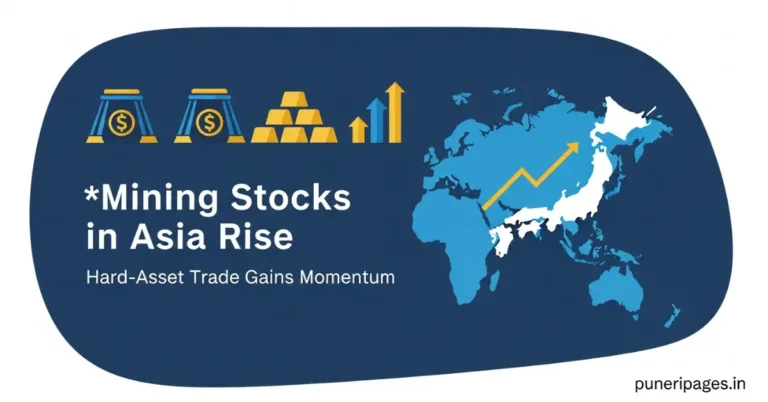
Rajendra Chola's legacy sails again—now on a coin. Explore India's ocean power story only on puneripages.in
By Prashant for PuneriPages.in
When Prime Minister Narendra Modi released a commemorative coin to mark 1000 years of Rajendra Chola’s epic naval expedition, I couldn’t help but pause.
Sure, it’s easy to dismiss such events as routine symbolism—another coin, another ceremony. But something about this moment felt different. This wasn’t just a nod to the past. It was a calculated, powerful reminder: India has always been more than landlocked empires. And maybe it’s high time we remembered that.
Table of Contents
🛡️ Rajendra Chola: The King Who Took India Beyond Its Shores
Let’s rewind the clock for a second.
Rajendra Chola I wasn’t your average ruler. He was the son of Rajaraja Chola, a man who already made history by building one of the greatest South Indian empires. But Rajendra? He didn’t just inherit an empire—he expanded it across oceans.
Imagine this: In the 11th century, an Indian king launches a naval expedition that sails all the way to present-day Malaysia and Indonesia, topples the mighty Srivijaya Empire, and comes back victorious. No GPS, no modern ships—just strategy, determination, and the raw power of vision.
That’s Rajendra Chola for you. He earned titles like ‘Gangaikondan’ (conqueror of the Ganges) and ‘Kadaram Kondan’ (conqueror of Kadaram), not for vanity, but because he actually pulled off those feats.
He made the Bay of Bengal his playground. Scholars even call it the “Chola Lake” because of how dominant his navy was. This wasn’t just about war—it was about controlling trade routes, spreading culture, and showing the world what Indian power looked like back then.
🌊 Why Modi’s Coin Matters—Right Now
Okay, now fast-forward to 2025. Why is a thousand-year-old naval conquest being talked about today? Why is the Prime Minister himself flying to Tamil Nadu just to release a coin?
Here’s what I think—it’s not just about history. It’s about India’s future. About the stories we choose to amplify.
1. Rediscovering Our Maritime Soul
Let’s be honest—we grew up on tales of Ashoka, Akbar, and the Mughals. Our textbooks rarely told us that India had a serious naval past. But we did. And celebrating Rajendra Chola puts that back on the map.
It’s time we start seeing India not just as a land power, but as a sea power too. We’ve done it before. We can do it again.
2. From Chola Diplomacy to ‘Act East’ Policy
The Cholas didn’t just go east—they built bridges. Their influence is still felt in Southeast Asian art, architecture, and even languages. So when Modi talks about building stronger ties with ASEAN nations, this isn’t random. It’s history repeating itself—with intention.
3. Indian Ocean and the Global Game
In today’s geopolitical chessboard, the Indo-Pacific region is heating up. Everyone from China to the U.S. wants a piece of it. By invoking Rajendra’s naval might, India is subtly reminding the world: We’ve been here before—and we’re still a player.
4. A Hero from the South—Finally
One thing that hits hard: Rajendra Chola’s legacy is South Indian, and it’s finally getting the national spotlight. For too long, India’s historical heroes have mostly come from the north. This coin helps change that. It broadens the idea of who gets remembered, and who gets celebrated.
🪙 What’s on the Coin, and Why It’s Not Just a Token
The coin itself—unveiled in Tamil Nadu—supposedly features Chola naval symbols, like their legendary ships or the tiger emblem of their dynasty. While its monetary value isn’t high, its cultural value is massive.
In his speech, Modi said something that really stuck with me:
“Rajendra Chola’s naval prowess showed the world India’s capabilities 1000 years ago. Today, India is once again reclaiming that spirit on the global stage.”
This isn’t nostalgia. It’s strategy.
🔥 Final Take: This Isn’t Just About the Past. It’s About What We Do Next.
I’m not a historian. But I do care about the stories we tell ourselves as a nation. And this gesture—releasing a coin for Rajendra Chola—isn’t just ceremonial fluff. It’s a bold statement.
It says:
- We had power.
- We had reach.
- We weren’t always under foreign rule.
And most importantly:
We can shape our future by rediscovering who we’ve always been.
This isn’t just a coin. It’s a wake-up call.






